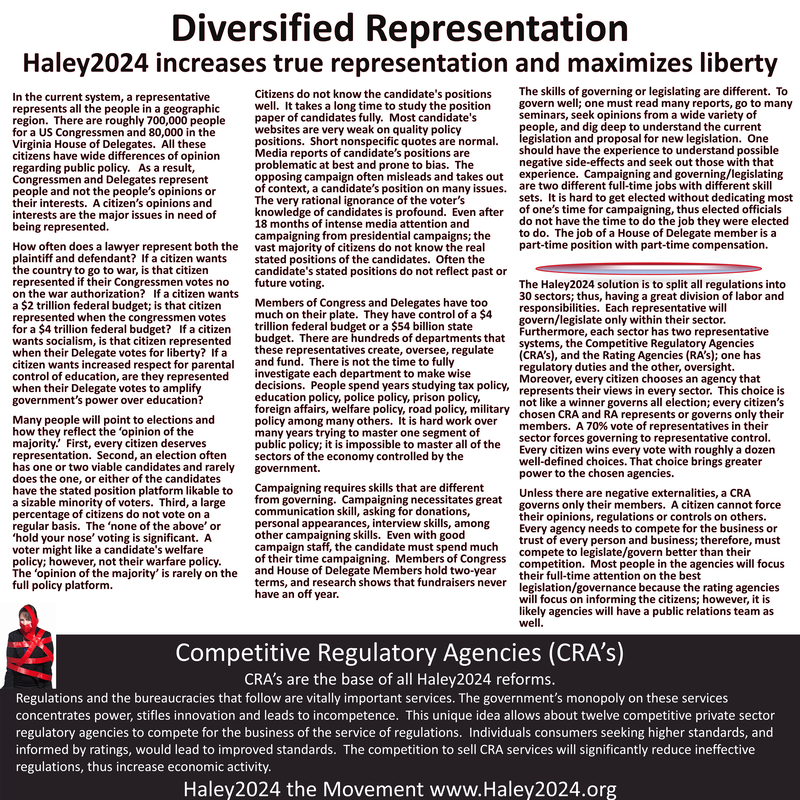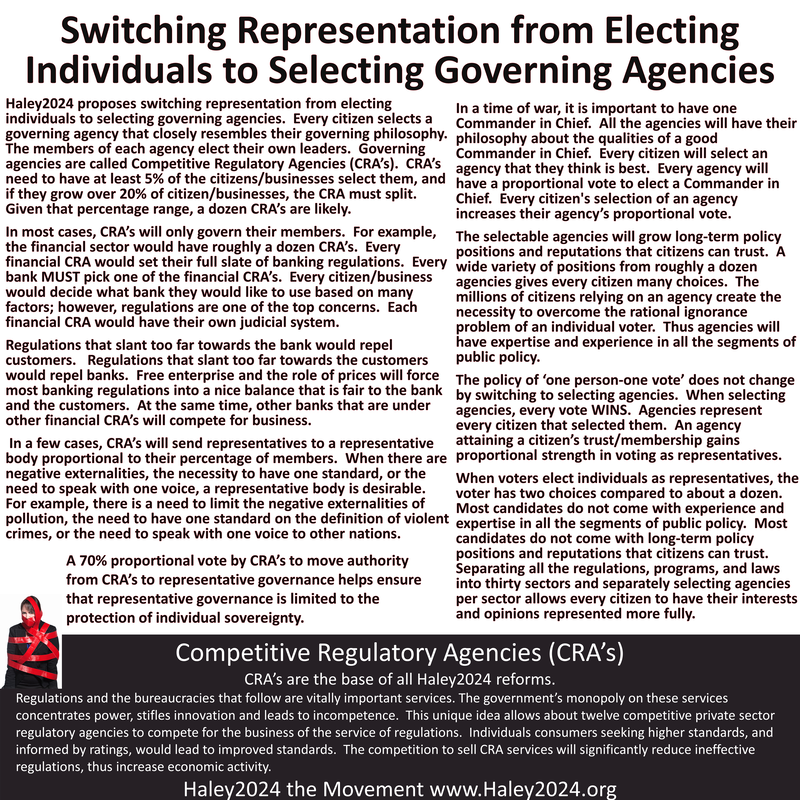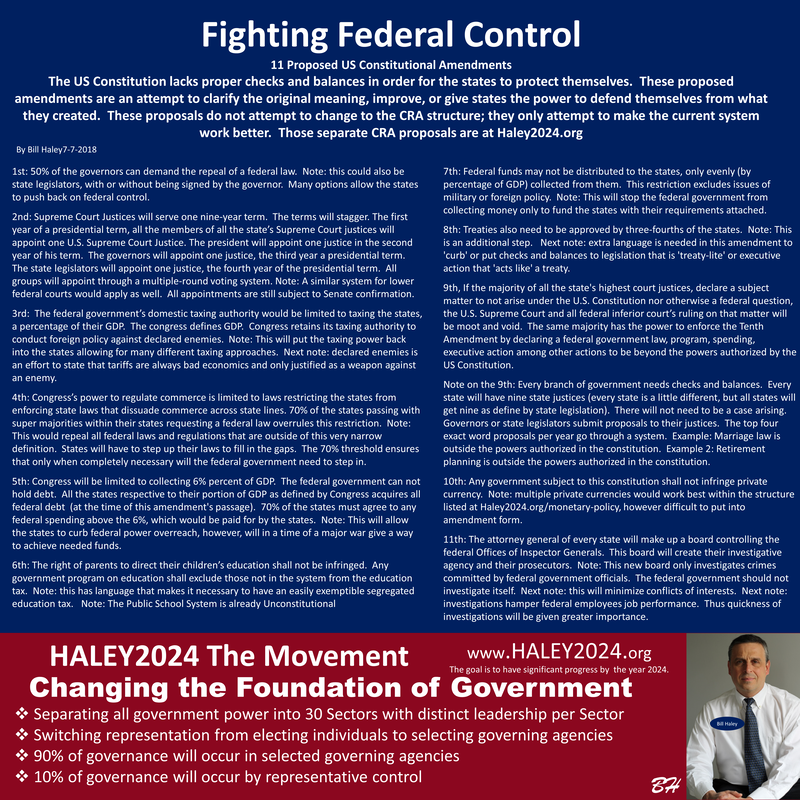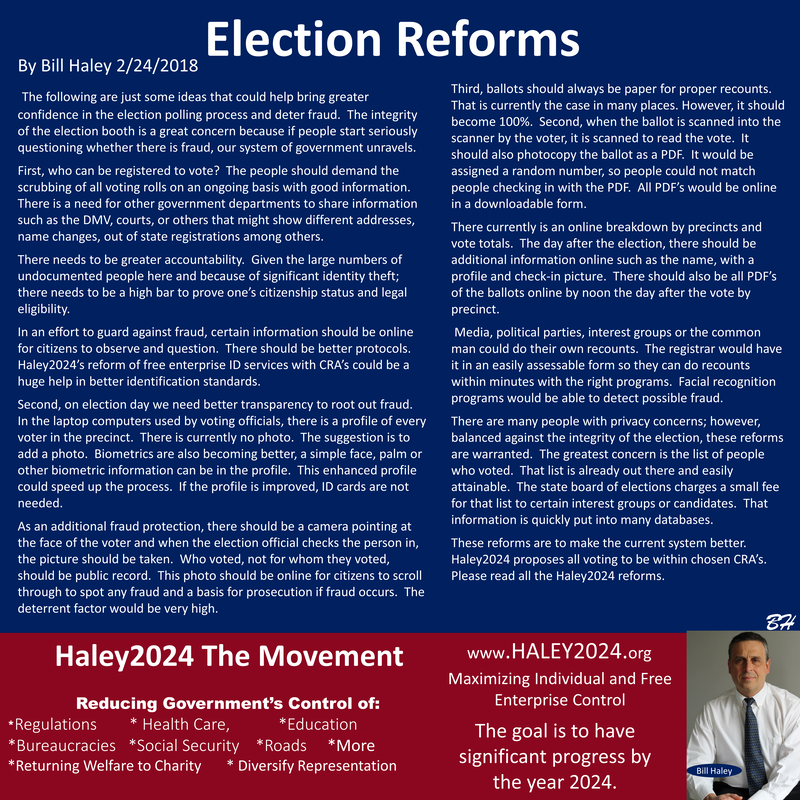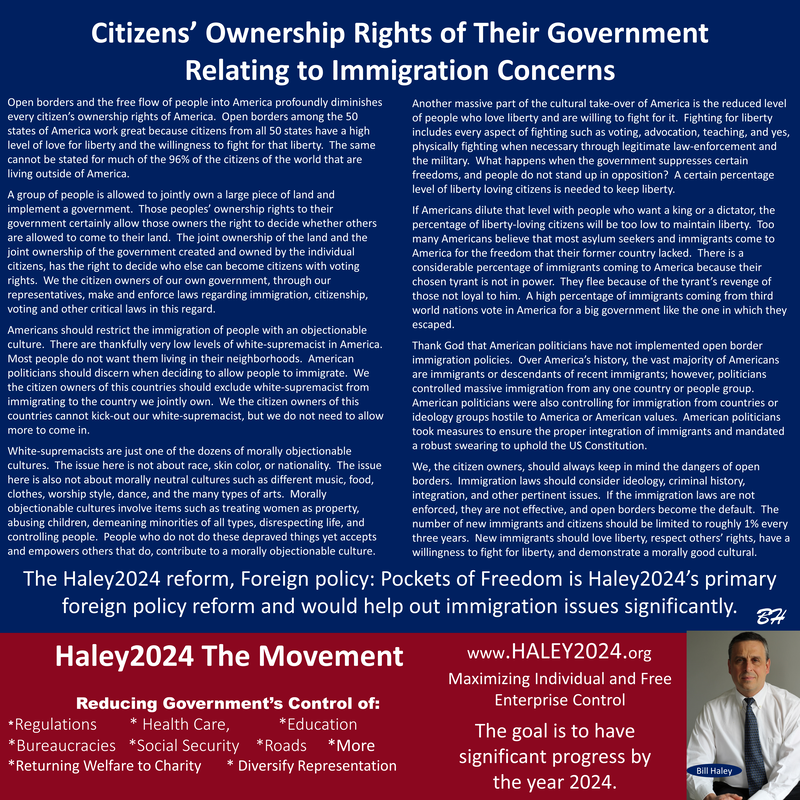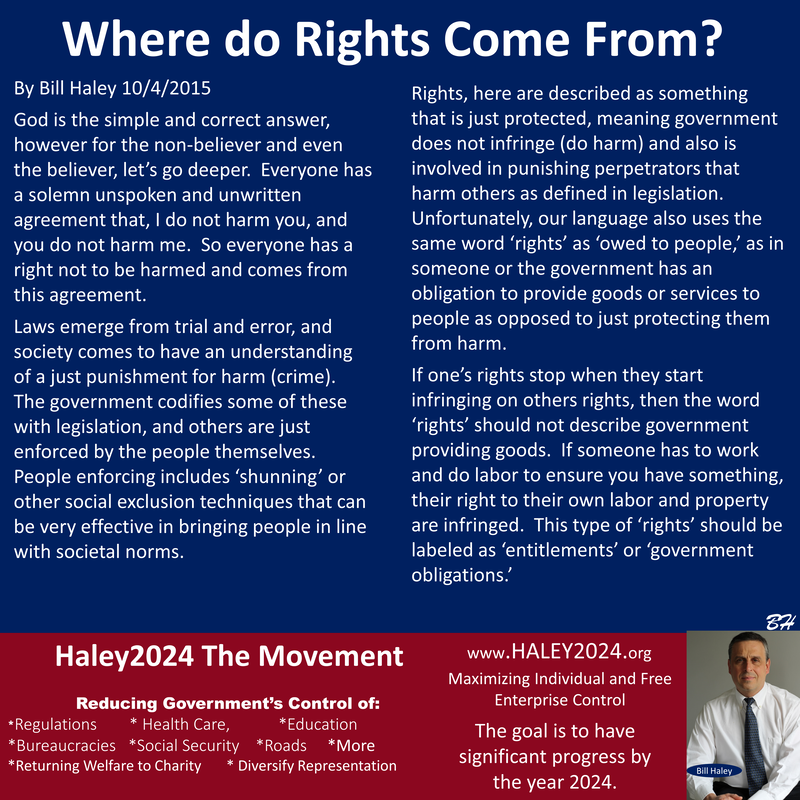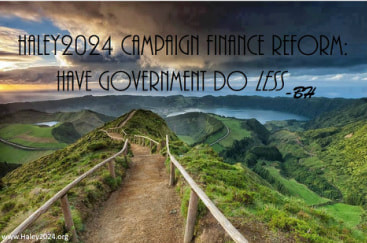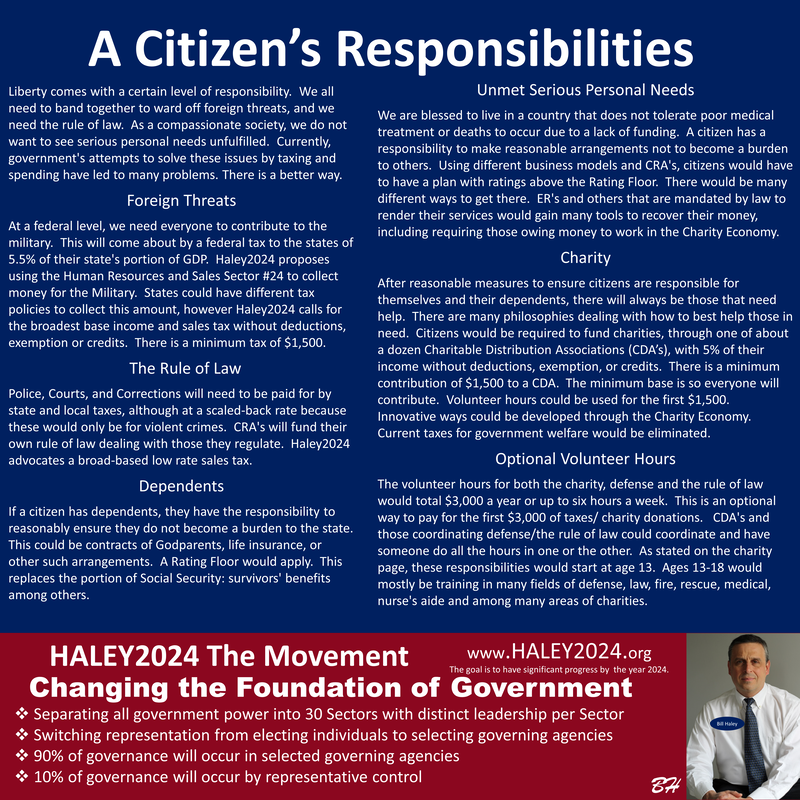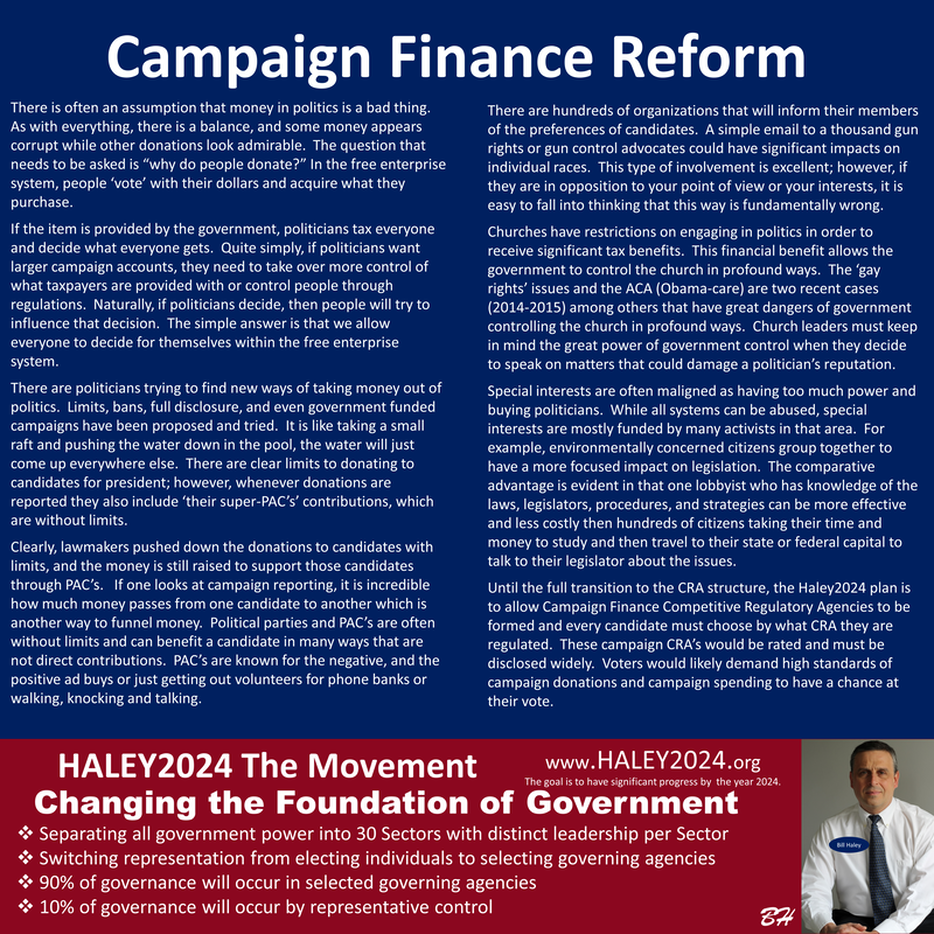| There is often an assumption that money in politics is a bad thing. As with everything, there is a balance, and some money appears corrupt while other donations look admirable. The question that needs to be asked is “why do people donate?” In the free enterprise system, people ‘vote’ with their dollars and acquire what they purchase. |
| If the item is provided by the government, politicians tax everyone and decide what everyone gets. Quite simply, if politicians want larger campaign accounts, they need to take over more control of what taxpayers are provided with or control people through regulations. Naturally, if politicians decide, then people will try to influence that decision. The simple answer is that we allow everyone to decide for themselves within the free enterprise system. |
| There are politicians trying to find new ways of taking money out of politics. Limits, bans, full disclosure, and even government funded campaigns have been proposed and tried. It is like taking a small raft and pushing the water down in the pool, the water will just come up everywhere else. There are clear limits to donating to candidates for president; however, whenever donations are reported they also include ‘their super-PAC’s’ contributions, which are without limits. |
| Clearly, lawmakers pushed down the donations to candidates with limits, and the money is still raised to support those candidates through PAC’s. If one looks at campaign reporting, it is incredible how much money passes from one candidate to another which is another way to funnel money. Political parties and PAC’s are often without limits and can benefit a candidate in many ways that are not direct contributions. PAC’s are known for the negative, and the positive ad buys or just getting out volunteers for phone banks or walking, knocking and talking. |
| There are hundreds of organizations that will inform their members of the preferences of candidates. A simple email to a thousand gun rights or gun control advocates could have significant impacts on individual races. This type of involvement is excellent; however, if they are in opposition to your point of view or your interests, it is easy to fall into thinking that this way is fundamentally wrong. |
| Churches have restrictions on engaging in politics in order to receive significant tax benefits. This financial benefit allows the government to control the church in profound ways. The ‘gay rights’ issues and the ACA (Obama-care) are two recent cases (2014-2015) among others that have great dangers of government controlling the church in profound ways. Church leaders must keep in mind the great power of government control when they decide to speak on matters that could damage a politician’s reputation. |
| Special interests are often maligned as having too much power and buying politicians. While all systems can be abused, special interests are mostly funded by many activists in that area. For example, environmentally concerned citizens group together to have a more focused impact on legislation. The comparative advantage is evident in that one lobbyist who has knowledge of the laws, legislators, procedures, and strategies can be more effective and less costly then hundreds of citizens taking their time and money to study and then travel to their state or federal capital to talk to their legislator about the issues. |
| Until the full transition to the CRA structure, the Haley2024 plan is to allow Campaign Finance Competitive Regulatory Agencies to be formed and every candidate must choose by what CRA they are regulated. These campaign CRA’s would be rated and must be disclosed widely. Voters would likely demand high standards of campaign donations and campaign spending to have a chance at their vote. |

